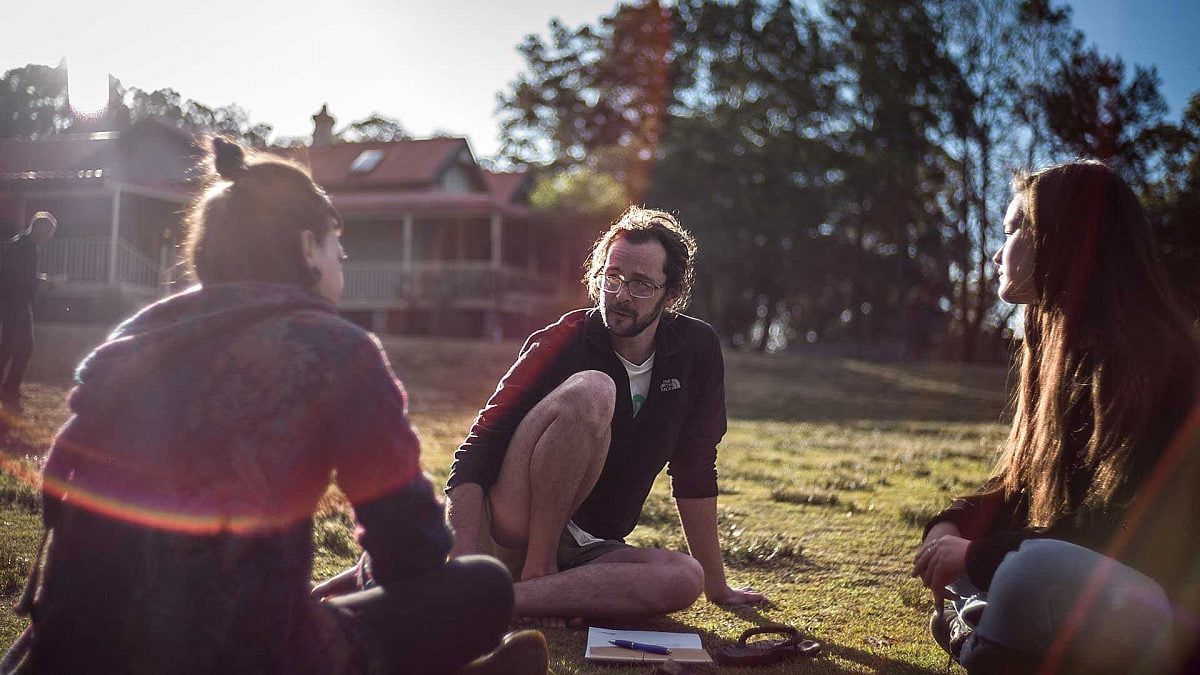
People like you
All over Australia, like-minded people are coming together for nature.
Our volunteers are addressing local environmental concerns as well as national issues like climate change and biodiversity loss, and gaining a sense of empowerment and hope.
Read their stories below and get inspired to join the growing network of local community groups across Australia, trained and supported by the Wilderness Society.
Diana Pryde, Sydney North group, NSW
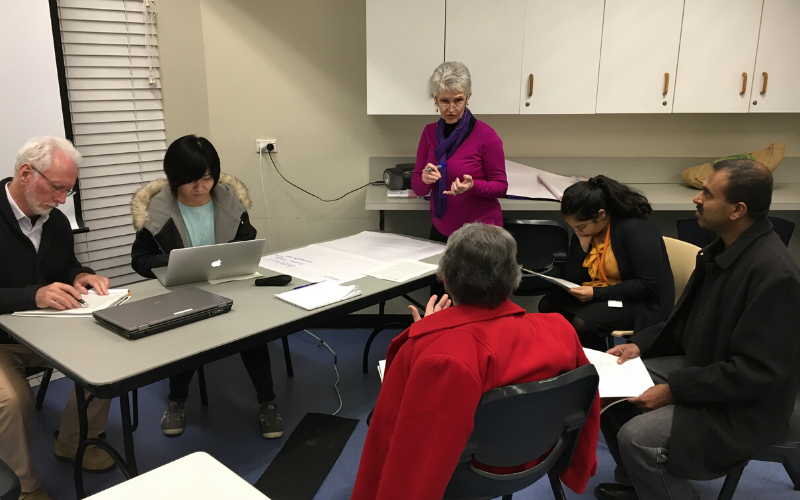
Joining a community group has enabled retired school teacher Diana Pryde to find a group of like-minded individuals within her community in Sydney’s northern suburbs, ready to take the next steps to protect nature.
What inspired you to get involved?
“When I was a teacher, I really enjoyed teaching topics around animals and nature and found that the children had a really good connection to that.
“In 2012 I spent a week in Menindee taking kids there on a school trip. Flying back from Broken Hill to Sydney, it was shocking to see New South Wales from the air and the number of gas wells criss-crossing the country. I’d always thought that the state had lots of bushland and trees; I was appalled to see that we actually had so little. That was in the back of my mind when I retired and got involved with the Wilderness Society.”
What have you gained from joining the Wilderness Society’s grassroots movement?
“It's reaffirming because instead of just feeling depressed about things like climate change, you can join others and actually do something; it’s empowering.
“We've got one lady [in the Sydney North team] who's in her 90s. Would you believe she's just done a two-day training course? Instead of thinking you can't do anything, you do what you can do you: write letters, make phone calls. And I say to members, ‘If you can't come to a meeting. It doesn't matter, we can send you the minutes’. People keep coming back because they feel they're making a difference and they can stay abreast of what's happening and be part of the solution.
“And we've made friendships with people that have joined the movement. We’re like this big brains trust; if you have a question you can always ask someone in the team. So you've got those connections and you find that they've got the same concerns about the environment that you have.”
What does your work with the group involve?
“Broadly, [the work] is a case of education, engaging with the community and really focussing on what a person knows, what they’re interested in, and starting a conversation around that. People want to talk and that's fine because you're just helping to grow that awareness.
“Some of [our team] have really good skills we can use; like web or artistic skills. And we have people to draw on for letter writing and talking to members of parliament and the public. For instance, one of our members, Garth Newton, developed an initiative to try and get the local government to have a soft plastics recycling scheme instead of relying on Woolworths and Coles. So he put together a discussion paper that he sent to the mayor, who then invited us along to a forum. Since then, we’ve had quite a link with Willoughby Council and we've been involved in organising plastic-free July stalls at events they put on.”
“It’s one of the reasons we [run] workshops on how to meet and write to your MP, because our politicians are accountable to us, and we need to know what they’re doing in our name.
“What’s exciting is that people who attend training [like this] have a golden opportunity to flex their newly honed skills on a major issue, with a review of our national environmental laws having just started.”
Why do you think community groups are so crucial for Australia’s nature going forward?
“I remember teaching English to primary school students and doing an information report on frogs. We became very interested in the corroboree frog.
“Around that time, John Howard was refusing to sign the Kyoto Protocol and the children saw the connection between global warming and the decline of the corroboree frog due to fungus. They were outraged and wanted to write a letter to the Prime Minister, which we did, urging him to sign the Kyoto Protocol.
“[I find that] reassuring, reaffirming. Children are passionate about animals, and once they know what threats they face, they’re very keen to be advocates for them.
“I've got two granddaughters and I don't want to leave the world in a worse state than when I was born. And I’m doing everything I can to make sure that we don’t have animals going extinct, that we don’t have rampant climate change out of control. What could be more important than that?”
David Cuschieri, Gold Coast, Queensland
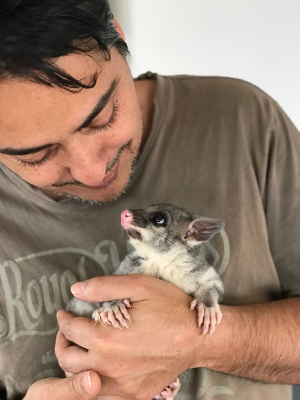
Having helped rescue koalas with his wife, David has witnessed firsthand the devastation that urban deforestation is having on the animals. The Wilderness Society’s campaign for new nature laws is critical for the survival of one of our most iconic species; he joined his local community group to make it happen.
What inspired you to get involved?
“Development has had a huge impact on koalas in our urban areas, causing them to live on increasingly smaller parcels of land; it creates islands [of habitat] that they can’t move between to breed or to find new food sources. Local councils are hamstrung because of state regulations and can only do so much [to help the koalas], while developers can get away with murder, so to speak, because they’re not breaking the law.
“Our laws are just too weak to look after our wildlife. Koalas shouldn't be having to cross roads to find new places to live because their places are cut down and destroyed.
“I got involved with the Wilderness Society because I was always thinking that somebody else would do something; I thought that unless I get involved in some way then how will I know that things are going to change?”
What have you gained from joining the Wilderness Society’s grassroots movement?
“For me the biggest thing was just trying to work out: How can I help? What can I do? Community groups give you the skills and connections with people, where you can actually find out what you can do. And it may be you can only do a little, or you can do a lot, but every little bit counts.
“Community groups are about galvanizing people to be able to make a change in the world, in their environment, in their area; to realise that as individuals, coming together we can be really powerful.”
How important is it to develop a strong community presence to help local environmental issues—such as the threat to koalas?
I think it's really important to get people involved. At the grassroots level, if we can get local people who actually have koalas in their area to join their local community group, that becomes a stepping stone for them to be able to see the wider issues in their area and in their country as well.
Why do you think community groups are so important for nature in Australia?
“If we can get enough people to understand the plight of koalas, and how they’re getting decimated in our urban areas - we can make a difference.
“Overhauling our environmental and national laws is critical if we are going to be able to save koalas. Just the sheer numbers of koalas that were brought in [to our rescue centre] in the last year is incredible and if we don't change this very soon, I think we've got only a few years before we no longer have koalas. So our work is critical.
“We may be individuals and often we feel like we’re on our own and we can’t do anything, but when we realise there are other people that feel the same way and we come together, we can achieve anything.”
Declan Auden, Arts and Activism group, Melbourne, Victoria
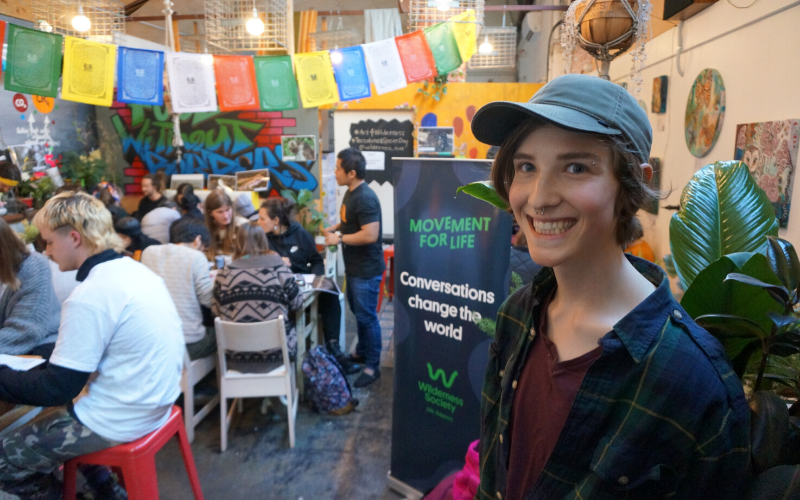
Declan was looking for somewhere to channel his joint passions for art and nature; his local community group provided a space for him to set up his own group that enabled him to do just that.
What inspired you to get involved?
“I grew up on a farm in the Dandenong Ranges and I always felt very one with nature; I loved being outside, just being in nature.
“I joined my local group after realising that my values didn’t align with what I was doing in my life. I struck up a conversation with some Wilderness Society volunteers I'd met on the street in Melbourne, and from that I wanted to get more involved. I went to a welcome night and then I did a two-day training course.
“I met some genuine, positive people who were doing things that were good for themselves and the world. It was a really inspiring and positive experience for me.”
What have you gained from joining the Wilderness Society’s grassroots movement?
“I feel like I’ve found a drive in life with something positive and that matters. And I feel like I have a little family within the Wilderness Society.
“Through the training and the conversations I’ve had with people, I’ve grown a lot and can articulate myself better and run events; I’ve realised that I can do a lot more than I gave myself credit for.
“A lot of people feel anxiety about the state of the environment today, but I always have a place where I can go and chat to people within my community group and in the Wilderness Society to feel empowered again, and then use that as motivation to carry on with the work.”
What does your work with the group involve?
“I help run the Arts and Activism group. Our first event was for Threatened Species Day and we hired some space and had 30 to 40 people turn up - a diverse group of all ages. We focused on endangered species, created art around them and had a lot of conversations about the threats they face. We’re trying to build that connection with people who care about the environment but don’t really know what part they can play and don’t necessarily want to protest, but they want to do something.
“So we’re making that bridge and bringing people into the community group and the Wilderness Society.
“I also lend my support to other events that groups are running, or helping the Wilderness Society’s major campaigns such as the push to bring forward new environmental laws, by writing letters to MPs for instance.
“Over time I’m feeling like with each little action I take there are little positive changes, and each conversation I have with people about our current situation [with the environment] is spreading awareness and driving change.”
Why do you think community groups are so crucial for Australia’s nature going forward?
“I think that grassroots power and people power is the thing that will have the biggest impact in terms of saving the Earth. By building connections based on common values, spreading awareness, and empowering each other, together we can make a difference. That’s why community groups are so important.”
Amanda Liaw, Inner South Wilderness Society group, Queensland
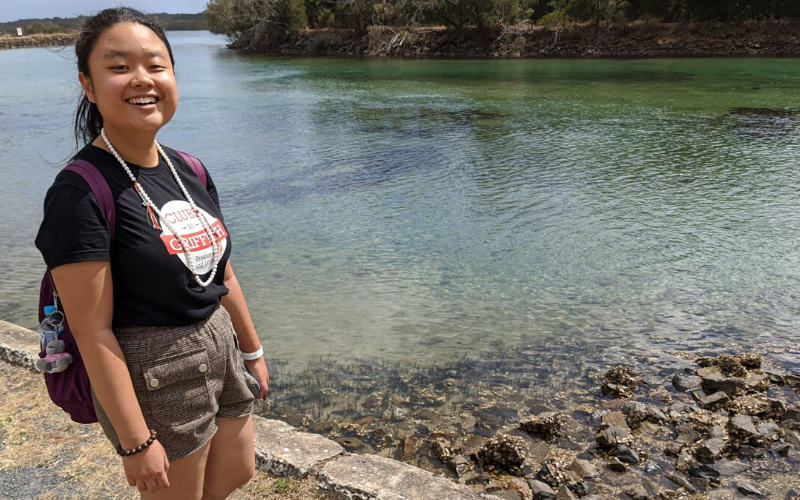
A relative newcomer to her community group, Amanda is fulfilling a lifelong desire to engage and give back to her community, and in a way that she knows will create lasting, positive change.
What inspired you to get involved?
I’ve always wanted to give back to the community since I was young, but I wasn’t sure how to. I didn’t have a specific goal to begin with, I just wanted to volunteer and be as proactive as possible.
Once I started studying at university, I realised that the role you choose to play in society doesn’t matter; what truly matters is that you have the heart to contribute to the community.
What have you gained from joining the Wilderness Society’s grassroots movement?
I have gained invaluable interpersonal skills; I feel more confident starting conversations with strangers than I did before. I’ve also made so many new friends, young and old, and from different walks of life. This has all been possible because I’ve had the chance to work with the local campaign teams at Inner South [Brisbane].
What does your work with your local group entail?
I’ve been actively volunteering with my community group for about three months now. I’ve had a rather broad experience as I had the chance to play different roles and responsibilities in the working group meetings at Inner South Suburbs. I have hosted my own community gathering where I invited my friends and fellow team members along to a picnic - we had some great discussions about the importance of taking action for the environment.
I have also been involved in two project groups in my team. The first was to start to introduce ourselves to other interest groups and networks within our community, while the second group's goal was to try to promote food sustainability in our area. All of the work has been interesting, fun, and really rewarding.
Why do you think community groups are so important for nature in Australia going forward?
This movement is vital for us to work as a collective group of environmentally conscious individuals. A whole team of like-minded individuals will strengthen the movement and help steer us towards our goals.
Having a voice of reason is great, however having a collective voice of reason will pressure society and the government to notice our actions, and hopefully, participate and join us.
Be part of it
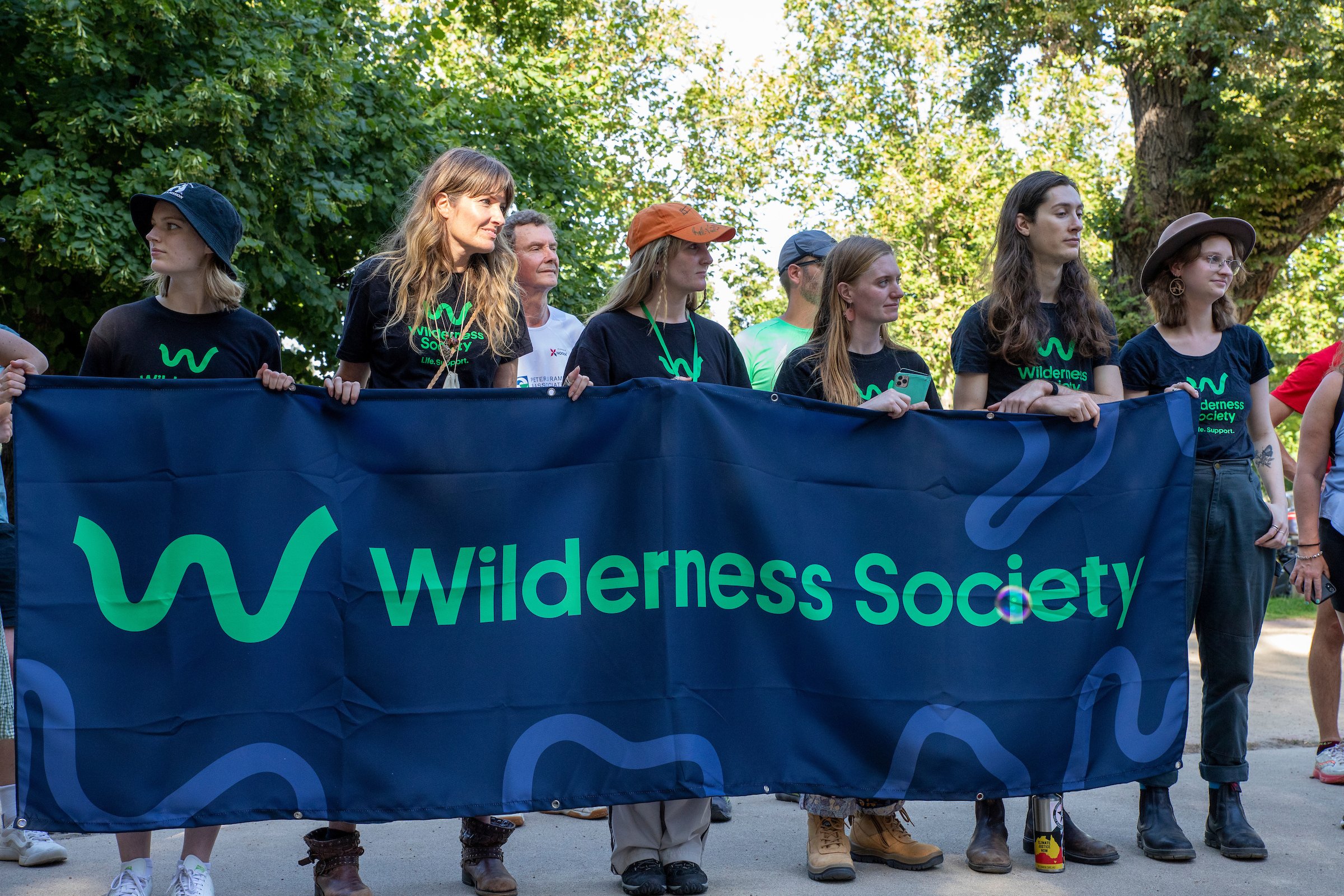
Join your local community group of passionate volunteers powering change for nature.